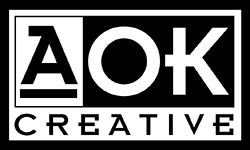Keywords form the core of your business. They drive every single search you do on a search engine. They are the word or series of words that best describe the content you are looking for. So finding effective keywords for your blog or website will determine how you rank when people search for that keyword and whether or not your content will be found—making keywords pretty damned crucial to your business.
Let me give an example; let's say the core of your business is selling pillows. Of course, you could use a keyword like 'pillows', but that isn't how people use a search engine. Today, we know that using a single word like pillows will spew out a tonne of results that are so vast that it's pretty much useless. So we've learnt that the best results are when we type in a statement like 'pillows for neck pain'. It refines the search, and your results are more relevant.
And while 'pillows' is a keyword, so are phrases like 'pillows for neck pain'. Or your keywords could be super specific, like 'pillows for neck pain for a side sleeper'. So you are still using keywords; it's just you are niching your search down to your specific needs.
How do you figure out what keywords would work best for your business?
You look would at:
- search terms that best describe your business solution
- search terms you know people are already using to find your content
- general search queries used for your solution or content
Our pillow supplier would use 'pillows' in their content, but they might also use the best pillow for neck pain or pillows for side sleepers. Whatever they think best addresses their market's needs.
That means you need to use the keywords your ideal clients are using when you build your website's Pillar Pages and Topic Clusters. If you use the wrong keywords, it will be tough for your business to grow because you'll be attracting the wrong kind of audience or, even worse, none at all. So you will want to use the most accurate keywords you can to make it easy for your customers to find you.
What's the best way to use keywords on your website and posts?
Do you remember a few years ago, the best way to get Google's attention was to stuff your pages full of keywords. Unfortunately, it made for some pretty repetitive reading and generally was rather dull. Thank goodness, those days are gone.
Today, the emphasis is on easy-to-read content and making sure you scatter your keywords throughout your text. Yoast (a leading SEO software developer) recommends using your keywords in no more than 2% of your content. That would break down to something like using it in:
- the heading or a couple of subheadings
- your title page
- first paragraph
- and your meta description
If you added your keywords to your content using this simple method as a guide, your content would ascend in search rankings. Of course, it's no guarantee you will rise to the coveted first page, but if you did a lot of research and got your keywords just right, you may get there. But more importantly, your clients will find it easier to discover you and your content.
Ideally, when you develop your business strategy, that's when you would do your keyword research. Those keywords would then drive your website build, content development, blogs and digital marketing. If you haven't developed a business strategy or missed doing this work while you were setting up your business, it's well past time you did.
If you want to build an effective business strategy that includes keywords, I've got a shortcut for you!
I am creating a powerful step-by-step program called the Business Impact Masterclass. We are talking about a jam-packed masterclass explicitly built to give you everything your business needs to build, promote, and confidently grow your business.
If you want help building a powerful business with a strong future, let's hop on a call to see if your business is a good fit.
